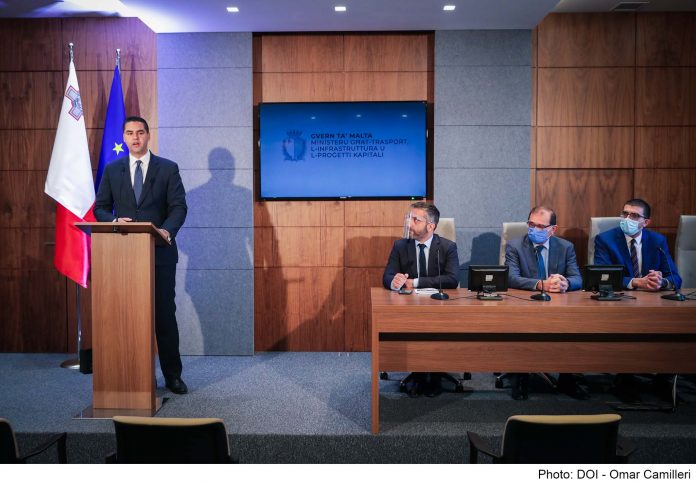
During a press conference with the Chamber of Architects, Minister for Transport, Infrastructure and Capital Projects Ian Borg discussed the draft ‘Act to regulate Architects’ and said that the process required for it to come into effect is concluded.
Minister Ian Borg said that, “These amendments have been set aside for 14 years, stuck in a process of discussions without any action being taken. Accordingly, the Labour Government has finally taken action so that what is written will come into practice. What was needed? Firstly, these amendments were necessary in order for Malta to be in line with the European Directives on concerns such as the performance of the service of an architect within the member states. However, we have gone a step further by introducing provisions which give a broader sense of legal certainty, accountability, security and transparency in the building and construction industry”.
“I welcome the fact that the Act governing architects was approved unanimously by Parliament yesterday. This Act will facilitate the modernisation of the profession for the benefit of the public. I look forward to proceeding with further meetings with the ministry in order to coordinate the implementation of various new provisions in this law”, stated Chamber of Architects President Andre Pizzuto.
This is being achieved by means of the following:
- The new Act reaffirms the concept that notwithstanding the obligation to comply with the Services Directive and the Mutual Recognition Directive, only an architect with a warrant can be responsible for the design and supervision of the construction of buildings and engineering works to finally certify the structural integrity of a building. In any case, the starting point remains that in order to be granted the warrant locally, one must, as a basis, have five years of full-time training, or the equivalent of 300 ECTS or have received academic training in Malta at least at Level 13 in a university or comparable teaching institution, for a minimum period of four years full-time, or the equivalent of 240 ECTS.
- The Act also stipulates that, in addition, a candidate who wants to obtain an architect’s warrant must also take an examination after having completed one year of practice under the supervision of another warrant holder who has been practicing for a minimum of 10 years.
- The Act proposes that an architect must have knowledge of one of the official languages of Malta.
- The law now goes a step further by now distinguishing between a Civil Engineer Architect and an Architect.
- This law also provides that there shall be a prescribed stamp issued, in accordance with regulations, to the warrant holder and that it shall also state whether the architect is an architect or an architect engineer. This should help the consumer know whether the person in front of him is an architect specialised in design aspects, or in structural aspects, or in both.
- The Act protects the role of the Chamber of Architects as the national regulator and the representative body of the profession of architecture.
- Although it is clear that the Council of the House will have the power to investigate prima facie warrant holders, the investigation into any breach must ultimately be handed over to a separate entity known as the Board for the Professional Conduct of Architects, presided over by a retired judge or magistrate and four members, two of whom will be selected by chance.
- The Act proposes that, for the first time, any warrant holder or partnership registered under the new Act should be covered by insurance policies that provide adequate protection. This should cover the warrant holder or the company against any liability to which they may be subject, such as compensation in respect of loss or damage to any person or object as a result of professional misconduct.









